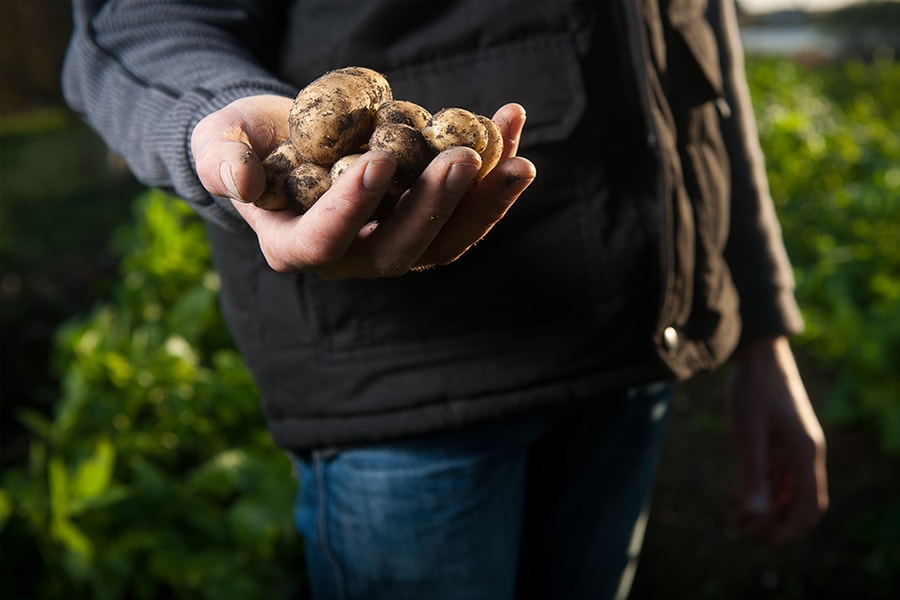
CMU's Lowry Weighs in On Future of Agriculture
A new National Academies report identifies research opportunities to transform U.S. food production by 2030
The National Academies of Sciences, Engineering and Medicine has released a new blueprint for how research can transform the fields of agriculture and food production. Greg Lowry, the Walter J. Blenko Senior Professor of Civil and Environmental Engineering at Carnegie Mellon University, was a member of the committee that created "Science Breakthroughs to Advance Food and Agricultural Research by 2030," which investigated the challenges facing American agriculture systems, and identified five key scientific breakthroughs and strategies that would sustain the future of U.S. food production.
Lowry and other committee members briefed both chambers of Congress on the report's strategy and findings in mid-July and presented the report to the public in a webinar.
"Business as usual approaches to managing agriculture and food systems are unable to keep the U.S. competitive in the global food and agriculture industry, or allow us to meet future demands," Lowry said. "Our committee proposes areas for strategic research investments to achieve science breakthroughs needed to make our food and agricultural systems more resilient and sustainable by 2030. It will stimulate investment for the convergence of ideas across scientific disciplines needed to develop efficient, holistic, systems-based management approaches to food and agriculture."
The breakthroughs the committee identified include taking a systems approach to manage the different elements of food and agriculture systems; using sensors to monitor across food and agricultural disciplines; applying data science and advanced analytics to the food and agriculture domains; implementing routine gene editing; and understanding the mircrobiome for increased efficiency and resilience. The committee also suggests how scientists, engineers and researchers can implement these breakthroughs.
As a member of this committee, Lowry provided expertise on nanotechnology enabled approaches to make food and agriculture systems more efficient. He also provided expertise on water treatment and water management alternatives, and systems-based approaches for agriculture management.
"The global demands for food are as much as doubling by 2050," Lowry said. "Sustainably meeting this demand [and those for energy and fiber] without unacceptable environmental consequences will only be possible through the new investments in science and engineering called for in this report. Without them, the U.S. will lag behind the world in agriculture productivity and its corresponding food security and economic benefits."